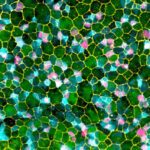Lien vers Pubmed [PMID] – 16809048
Methods 2006 Jul;39(3):262-74
Recent reports make use of the zebrafish to study complex behavior such as addiction, anxiety, or learning and memory. We have established reliable tests and appropriate controls to measure these behavioral parameters in the zebrafish adult. Our assays are robust enough to permit the detection of dominant mutations affecting drug-induced reward, and therefore can be used in forward genetic screens. We provide the reader with the technical details of these tests, as well as their appropriate and crucial, although often overlooked, control assays. In particular, our results make it possible to use the zebrafish as a promising model to identify new genetic components of the reward pathway, or other measurable behaviors.

